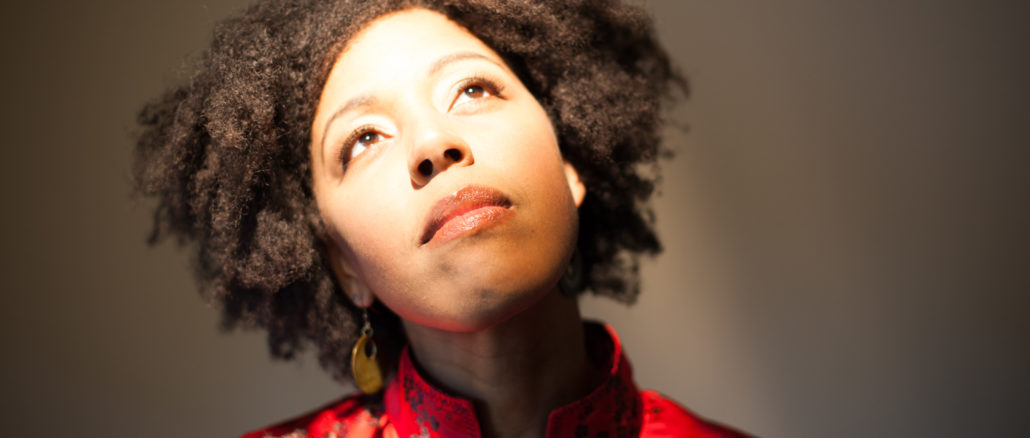
This series spotlights musical artists from The Nasiona‘s first compilation album, Volume 1: Petrichor.
Eki Shola’s track “Change the System” is featured in the volume.
Eki Shola’s music is “Half-time electronic soul for the mind” — Resident Advisor. Featured in PBS, NPR Tiny Desk Contest, KQED and most recently selected Best of the Bay 2020 Editors’ Pick, Eki Shola’s music transcends genre, as she seamlessly draws from jazz, electronica, and soul music to create a sonic landscape all her own. A vocalist, multi-instrumentalist, and physician, Eki Shola uses her music as a conduit for healing.
Born in London to Jamaican parents, Eki Shola was raised in a musical family. She emigrated to NY in ’87 and later as a pre-med student at Cornell, she performed in the jazz ensemble. Now based in Northern California, ASCAP Plus winner and four-time NorBay Music awardee, Eki Shola is currently on her Essential Virtual Tour, performing and giving talks across the world.
In 2016, fueled by grief, she was inspired to release her debut album, Final Beginning. Subsequently, after a traumatic escape from the October 2017 wildfires, Eki Shola was further moved to focus more on her music and she composed Pieces, a trilogy. Each album portrays a particular stage of reflection. Possible (11/11/19 release) symbolizes a moment characterized by hope and a determination to not give up after losing so much. Drift (2/2/20 release) represents the subsequent period of wanting to be cocooned within a movement that was comforting, and healing. The newly released Essential (9/9/20 release) envelops you in instrumentals, spoken word, and lyrics that share hope, inspired by periods of contemplation among movements of climate change, coronavirus pandemic, and Black Lives Matter advocacy. Completing her Essential Virtual Tour in January 2021 and inspired by observing the need for amplifying the voices of underrepresented creatives, Eki Shola was moved to create and launch Unmute Magazine, a digital publication by and mainly for BIPOC artists.
INTERVIEW
What does countercurrence mean to you, and what is it like to make music when you are outside those mainstream voices that are usually given a platform?
It feels so freeing to create the kind of music that I want to. I’m not trying to sound like anybody in particular or mold my music to fit into a certain genre, and that opens up opportunities for me to be more creative and authentic.
Would you always have turned to music as an important avenue through which you express your BIPOC identity? Or have you always found ways to do this, which happen to include music?
If I had answered this 4 years ago when first starting out in music, I would have said no, I don’t consciously utilize music to express my BIPOC identity. However, since the BLM movement, that has changed, and I have come to value how music can indeed be a tool to share not just about my identity but about the collective experiences and challenges that BIPOC have and continue to endure. I do strongly feel that music’s unique ability to induce emotions and connectivity can surpass our socially constructed limitations and boundaries and therefore has the potential to unite us all.
What are the differences or similarities you perceive in online and physical music communities, especially when our relationship to proximity has been indelibly altered?
Never before have I been connected in such a global way. I transitioned to virtual performances early on, and have only received positive reception. Yes the connectivity is different as compared to a live performance, but you can still very much connect over Zoom. 2020 as challenging as it was, afforded me the wonderful opportunity to perform and give talks for audiences in the UK, Japan, Ireland, NY, and more!
Do you believe in breaking down the barriers that have long kept BIPOC musicians away from the same opportunities as their white peers, or should BIPOC musicians be looking beyond those traditional guidelines to success?
Both, but I think we need to band together and form our own opportunities and networks. As long as you continue to rely on someone else, you’re always at their mercy.
If you had to solely choose between walking in the legacy of a musician/musical tradition you admire, or forging your own path and inspiring others yourself, which would it be, and why?
Forging my own path 100% because that’s the only path I know. This is my journey that is unfolding with each step. For me, trying to emulate someone else and reach their achievements would mean to deny my own story, my own journey and my own personal and unique contributions to this world.
Volume 1: Petrichor
About the Album
This first volume of The Nasiona’s music series encapsulates all the glorious highs and the searing lows of navigating the world as an empathetic, curious individual. The works contained in this volume — from mournful piano compositions, dazzling spoken word, spellbinding vocal layered-songs, to beautiful instrumentals — express the intricacies of being an artist of color in a too-often indifferent world; and like the scent that lingers long after the downpour, these masterpieces ask you to sit awhile, to close your eyes, to pay attention.
MUSICAL ARTISTS
ALBUM PRODUCERS
Music and oral narrators have always told stories that are as powerful, as moving as personal essays, and we at The Nasiona want to honor these tradition. For the second compilation audio volume of our BIPOC Music + Spoken Word Series, we seek submissions of tracks that align with our vision of centering, elevating, and amplifying Black, Indigenous, and People of Color, shedding light on neglected and intersectional identity experiences, while also celebrating our beauty, intelligence, creativity, and joy.
Whether you record your music or spoken word professionally, or whether you have gone the DIY way throughout; whether you are an emerging indie artist, or have never released a track or album; or whether you have simply felt overlooked by the mainstream musical landscape: we believe in your voice, your story, and your talent; and we want your work!
Tell us about growing up as a third culture kid, about living through trauma, about being misgendered, about slice-of-life instances of resolution. Tell us about your elations, your sorrows, your moments of quiet tenacity, your rallying cries of rage. Send us a track (or two, or three!) that tells a story, whether in words or through instrumentals. If it matters to you, it deserves a platform.
All genres and languages are welcome. If you identify as BIPOC, we want to showcase your work and profile you.
We can’t wait to experience to your work!
Note that we are here to center, elevate, and amplify your work. You keep all the rights to your work.
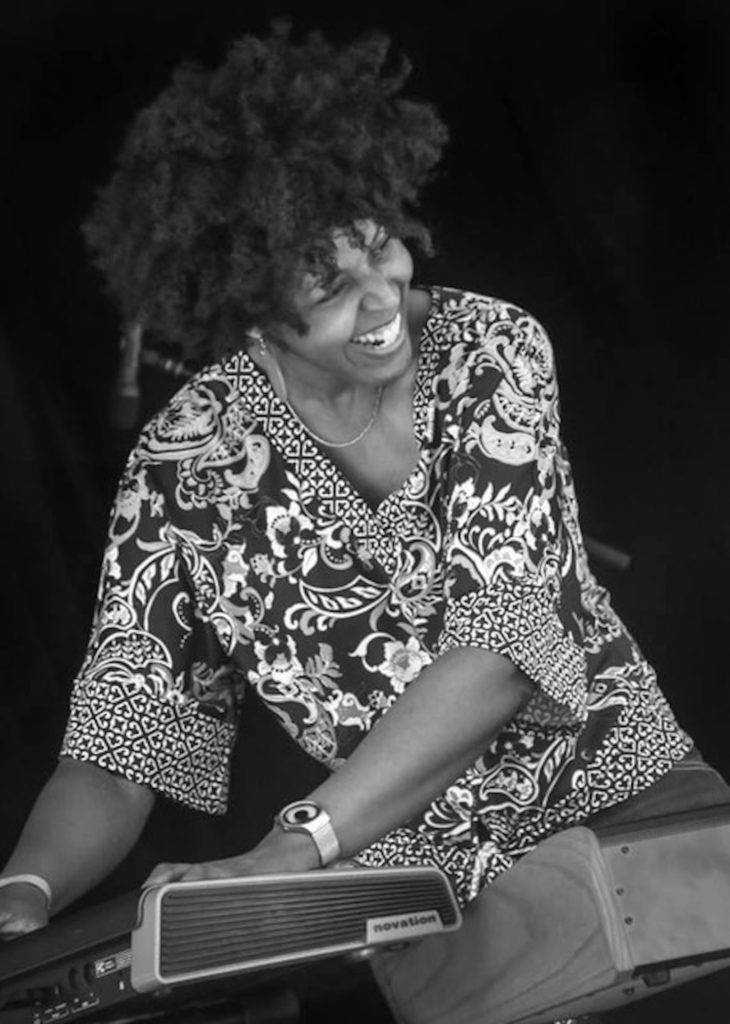

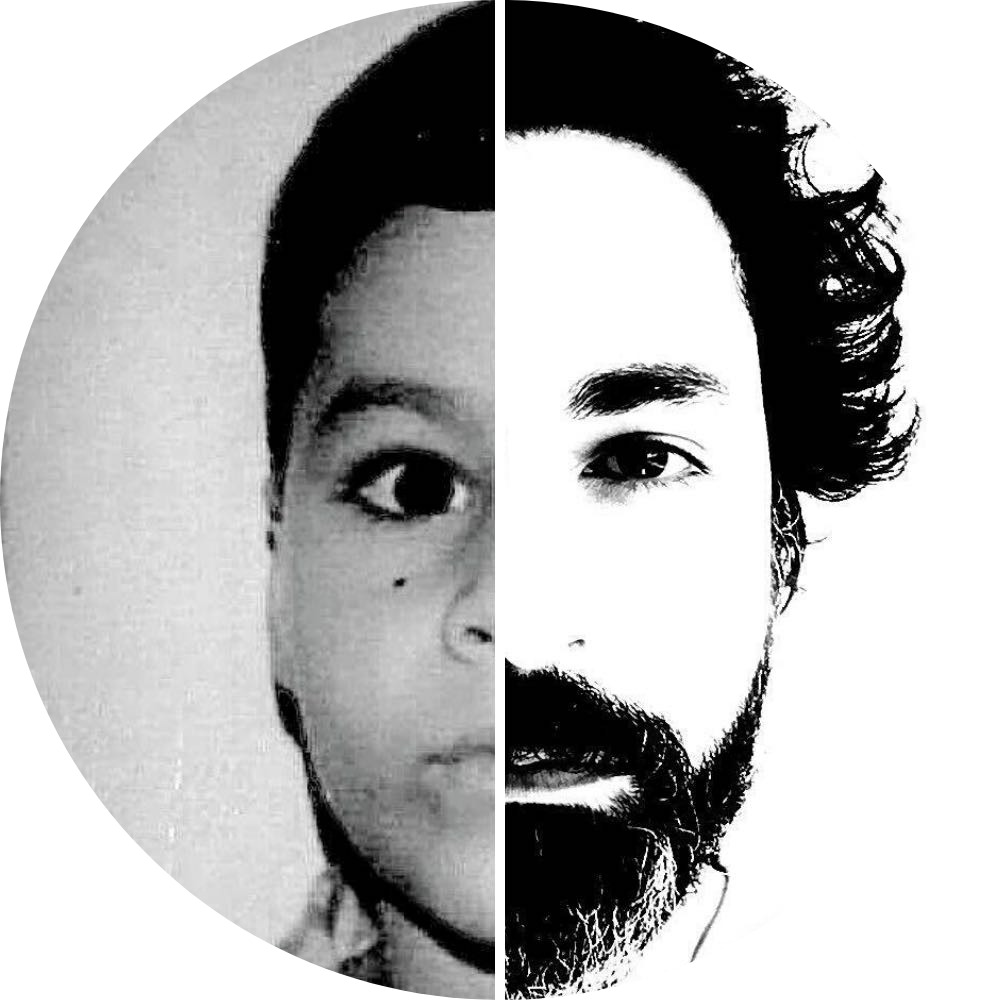
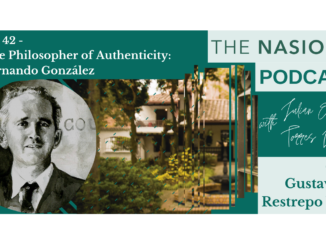
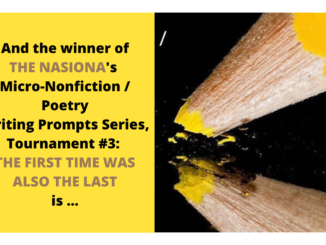
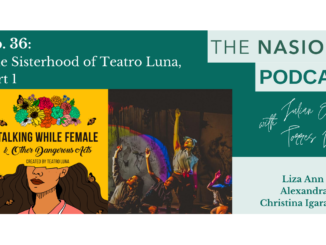
14 Trackbacks / Pingbacks
Comments are closed.